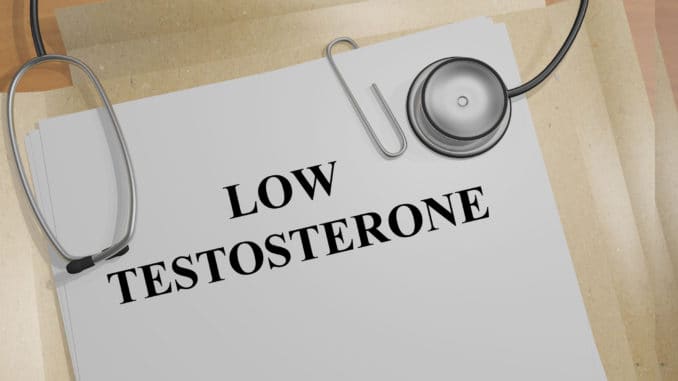
[cmamad id=”26014″ align=”center” tabid=”display-desktop” mobid=”display-desktop” stg=””]
A little bit of this mineral makes a BIG difference…
—-Important Message—-
Use this mineral to naturally boost your testosterone and amplify your sex drive
You only need 3 drops of this natural mineral – but it has to go to the right place…
Just paint it on your penis and scrotum and get ready for a surging sex drive…
This natural mineral kick-starts your Leydig cells into making more testosterone and other important sexually-charged hormones…
It gives your libido a boost and you’re full of confidence.
And all you have to do is paint it on and watch it grow.

———-
Low Testosterone? Give This Natural Mineral a Try
Zinc is an essential mineral found in trace amounts in some foods.
Only a small number of foods contain high amounts of zinc.
So, unfortunately, zinc insufficiency is very common these days.
This mineral has an effect on a number of important hormones.
Scientists know that it influences testosterone, estrogen, and DHT.
But most people don’t know just how large an effect zinc has on testosterone levels.

These researchers carried out human experiments at the Department of Internal Medicine, Wayne State University in Detroit. They published the results in the Journal of Nutrition.
Zinc deficiency is a widespread problem.
“Zinc deficiency is prevalent throughout the world, including the USA.”
Inadequate dietary zinc causes growth retardation in children.
In adult men, extreme zinc deficiency is known to cause low testosterone and lower fertility.
“Severe and moderate deficiency of zinc is associated with hypogonadism in men.”
Before this study, scientists had not looked at marginal zinc deficiency and testosterone levels.
What happens if your zinc levels are just a bit on the low end?
“The effect of marginal zinc deficiency on serum testosterone concentration is not known.”
This study recruited 40 healthy men – young and old.
“We studied the relationship between zinc and testosterone in 40 normal men, 20 to 80 years of age.”
First they tested the young men for zinc and testosterone levels.
“In four normal young men (27 yrs), we measured serum testosterone before and during marginal zinc deficiency.”
The researchers then put the young guys on a zinc-deficient diet.
The low-zinc diet caused a massive drop in testosterone.
“Dietary zinc restriction in normal young men was associated with a significant decrease in testosterone after 20 weeks.”
Five months of zinc deficiency dropped average testosterone levels by almost three quarters!
“Baseline versus post-zinc restriction mean was 39 nmol/L versus 10 nmol/L.”
The researchers then did the opposite with the older men.
These men were in their late 50s to early 70s.
“We also measured serum testosterone in nine elderly men (64 +/- 9 yrs).”
These men had marginal zinc deficiency at the beginning of the trial.
“The nine elderly men were marginally zinc deficient before supplementation.”
These men had similar testosterone levels to the young men with zinc deficiency (8 and 10 respectively).
The researchers gave these men zinc supplements to bring them up to healthy zinc levels.
“Supplementation was provided with 459 mumol/d oral zinc administered as zinc gluconate.”
They continued this supplement routine for three to four months.
Zinc supplementation doubled testosterone levels of older guys with marginal zinc efficiency.
“Zinc supplementation of marginally zinc-deficient normal elderly men for six months resulted in an increase in serum testosterone from 8 to 16.”
And this has an enormous effect on testosterone levels – regardless of age.
“We conclude that zinc may play an important role in modulating serum testosterone levels in normal men.”
Very few supplements or techniques have this much of an effect on testosterone levels.
(The men had a full medical before joining the study. They all passed as completely fit and healthy.)
Zinc can have a huge benefit in relatively healthy men.
“These results underscore the importance of zinc for maintenance of serum testosterone in apparently healthy adults.”
Because zinc deficiency is so common, these results are relevant to a huge number of men.
“Marginal deficiency of zinc is common – zinc status must be ascertained in normal men with decreased serum testosterone concentrations.”
[cmamad id=”26015″ align=”center” tabid=”display-desktop” mobid=”display-desktop” stg=””]
Oysters are great dietary source of zinc…
This is probably why we think of them as a potent aphrodisiac.
But be careful with supplements – supplementing huge doses of zinc can cause imbalances with other minerals such as copper.
I personally avoid supplementing with zinc. Instead I consume wild seafood such as oysters, squid, scallops or wild (not farmed) shrimp.
And I eat good quality calf liver or lamb liver.
These are great sources of zinc and copper without the dangers of supplements.
You should always consult a healthcare practitioner about treating and diagnosing health-related problems.
—-Important Message From Our Sponsor—-
Proof this trick works for men who want higher T, bigger loads, and harder erections…
More than 3,500 men are already taking advantage of this discovery…
A 63-year-old man we’ll call S.T. says:
“I wake up with morning wood almost every day again, and no longer have to wonder whether or not I am going to satisfy my wife sexually.”
And 42-year-old E.N. from Australia says:
“It’s like rolling the clock back 5 years! My sexual appetite is off the charts, and my girlfriend says her pussy is sore in a good way!”
It’s a proven, safe, natural testosterone solution for men, and you can try it today and experience the benefits immediately.
———-

- Zinc status and serum testosterone levels of healthy adults.
https://www.ncbi.nlm.nih.gov/m/pubmed/8875519/
- Low testosterone
https://www.healthdirect.gov.au/low-testosterone - Are testosterone-boosting supplements effective? Not likely, says new study
https://keck.usc.edu/are-testosterone-boosting-supplements-effective-not-likely-says-new-study/
